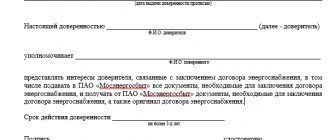What is property management?
If you are the happy owner of real estate on which you can do business, you don’t have to do the business yourself. There is a more civilized and simpler option - to hand over your property to the management of a professional company.
The company will be engaged in the commercial operation of your premises, and you will receive regular profits. A classic example of passive income. Naturally, some part of the financial proceeds will be used to pay fees for the services of the management organization.
As part of property management, there is a reasonable separation of the functions of the owner and manager. The owner’s task is to find a reliable, qualified and efficient intermediary who will look after his interests.
Further, all management functions are delegated to competent employees, but strategic decisions and overall control remain with the owner. The manager, in turn, acts on his behalf and, if necessary, makes proposals to increase income or improve operating conditions.
Let us list the main advantages of trust management:
- saving time and effort for the owner;
- increasing the competitiveness of the property in the real estate market;
- the legal aspect of the operation of the facility is in the hands of professionals;
- the manager closely monitors the condition of the property and tries to prevent damage to the property or improper handling of it.
If previously, mainly foreign real estate was transferred to trust management, in recent years this service has been gaining popularity in the domestic housing market of Russia and the CIS countries.
It is much easier to transfer the property into competent hands than to deal with it yourself - looking for tenants, selecting reliable candidates, drawing up contracts, collecting monthly fees, listening to neighbors’ complaints, etc.
In the case of third-party management, all these concerns are entrusted to a professional company that knows better how to ensure that all participants in the process (including neighbors) are satisfied and happy.
A short list of professional tasks of a management company:
- creating favorable conditions for the client;
- promoting the property on the real estate market in order to extract maximum profit;
- contacts with insurers and brokers;
- development and implementation of measures to optimize the costs of operating the facility;
- carrying out planned preventative and repair work;
- searching for tenants, negotiating with them, drawing up lease agreements, monitoring compliance with contracts;
- financial settlements;
- interaction with government authorities (if necessary).
The profession of a property manager has become increasingly in demand over the years. Firstly, because despite any crises, more and more residential and commercial properties are being built in the country. Secondly, more and more property owners want to delegate authority to professionals rather than handle things themselves.
Where do they study to become a property manager? In some specialized universities - in particular, at MGSU (Moscow State University of Civil Engineering), at MGUP (Moscow State University of Environmental Engineering), at the capital's Academy of Public Utilities and Construction, St. Petersburg State Polytechnic University and some other educational institutions.
In addition, in Moscow you can complete paid courses organized by certified specialists from the US Institute of Real Estate Management (IREM).
You will find additional information on the topic of proper management of real estate in the article “How to rent out an apartment.”
Property management
5 reasons to transfer your apartment to MAXBNB management
- Great experience. More than 6 years of experience in residential property management in Russia and Thailand. As of January 16, 2020, there are more than 70 objects under management, 16 people on the team.
- Monthly payments and detailed reports . Full details of all income and expenses every month. We pay your income on the 15th of the next month in a way convenient for you.
- Maximum profitability. We provide priority placement of your properties on the most popular online sites (Booking.com, Airbnb, Agoda, Expedia, and others) thanks to our high ratings and guest reviews, constantly analyze prices taking into account seasonality and competition, and work with travel agents and independent brokers. We constantly optimize processes and reduce costs, increasing the profitability of each facility.
- Absolute control over your real estate. You have access to your booking calendar right on your smartphone.
- Use your home without restrictions. Come when it suits you and stay in your accommodation, you can plan your vacation right in your personal account.
Terms of cooperation
- Net profit split 70/30 , where you get 70% of rental income.
- Exclusive contract - you rent out your home only through our company.
- Signing a trust agreement in English and Russian.
Payment scheme
- Income – all money received from guest bookings, cleaning fees, utility bills, etc.
- General Expenses Commission of booking services (10-20%)
- Fees for accepting payments (1.8-4%)
- Settlement costs (Welcome pack, cleaning, laundry)
- Routine cleaning (change of linen and towels, laundry)
- General cleaning, dry cleaning and maintenance (air conditioning, etc.)
- Payment for condominium maintenance (Maintenance fee)
Payments are made according to the following formula:
Owner’s income = (Income – Expenses) * 70% – Owner’s expenses
Frequently asked questions and answers
- Will my apartment be rented out all year?
- Phuket receives tourists all year round, however, there are 3 distinct seasons: low (May-October), high (November-April), within which there is a peak (December-February), we ensure maximum occupancy for each season, flexibly adjusting prices and working with a large network of agencies.
- Who pays for electricity and water?
- For long-term rentals (from 1 month), utilities are paid by the living guests based on consumption according to meters; for short-term rentals, we include the average cost of the utilities. services included in the cost of the night.
- What if guests break or steal something?
- We inspect the property after each guest and, in the event of damage, we take measures to collect compensation through a security deposit, with the support of online booking systems or in conjunction with an insurance company.
- Can I come and stay in my apartment?
- During the contract period, you can live in your apartment unlimitedly, while you pay for the utilities you consume and the services of the management company at standard rates. You can check available dates yourself in real time and notify us of your visit at least 90 days in advance.
Owner and director of the management company Beringela Co. ltd. – Maxim Samoilov, has Airbnb Superhost status, was a speaker at Airbnb office events in Moscow for first-time hosts, a participant in the Airbnb Open Paris 2020, Airbnb Open Los Angeles 2020 conferences, advised short-term rental projects, including the Evans company as part of the World Championship football 2020 in Moscow (50 apartments), host of the Entrepreneurs Club in Phuket.
Apartments under our management and guest reviews can be found here:
On the Airbnb website
Booking.com
The Title Residences Naiyang by Beringela
Palmyrah Surin Apartments by Beringela
Contacts
Maxim Samoilov, Beringela Co. ltd.
Tel: +66 646 744300 (Whatsapp, Line)
Just leave a request and I will contact you within a day
Features of the profession
The activities of a property manager are carried out in three aspects:
- legal, the essence of which is the most rational use and distribution of rights to real estate;
- economic, which is the effective management of income and expenses during the operation of real estate;
- technical - constant maintenance of the control object in working condition.
Depending on the category and level of the property, the professional tasks of the manager can be very different.
The functional responsibilities of a property manager at any level begin with:
- conducting a comprehensive examination of investment decisions;
- comprehensive analysis of the condition of the property and development of a strategy for its management;
- development of economically sound technical specifications;
- design and organization of production systems;
- development and implementation of standards for the management and operation of real estate;
- development and control of budget execution for the operation of the property;
- conducting a technical and operational study of the facility and its acceptance;
- assessing the conditions of operation and maintenance of real estate.
Before directly leasing a property, the manager:
- organizes an advertising campaign for this object using the media and personal contacts;
- concludes all necessary agreements for the maintenance of the facility and monitors their implementation;
- organizes and controls production and economic activities;
- interacts with regulatory authorities;
- organizes repair work and, if necessary, reconstruction of the facility;
- ensures the operation of engineering and technical systems;
- engages in the selection of professionally suitable service personnel; arranges insurance for the property.
- After leasing the property, the manager is engaged in:
- building infrastructure management;
- supervising the work of personnel, if necessary, organizing their training and advanced training;
- monitoring compliance with labor protection and safety standards at the facility;
- maintaining financial statements for the property.
Property Manager
Salary Reviews | February 1, 2010Author: Research Center of the Superjob.ru portal
The research center of the recruiting portal SuperJob.ru (https://www.superjob.ru/) in February 2010 studied the offers of employers and the expectations of applicants for the position of “Real Estate Manager” in 9 cities of Russia.
The functional responsibilities of such specialists include all aspects of managing the use of real estate. Their competence includes the formation of a strategy for the operation of the property, development and control of the implementation of the corresponding budget. Property managers are responsible for developing and implementing operating standards, organizing the work of technical services, carrying out repairs and reconstructions, and ensuring the uninterrupted functioning of the building's engineering and technical systems. In addition, property managers interact with tenants, owners, contractors and regulatory authorities, manage staff, organize employee training and monitor compliance with health and safety standards at the site.
The average salary of property managers in Moscow is 75,000 rubles, in St. Petersburg – 65,000 rubles. In Omsk and Samara, property managers earn about 33,000 and 35,000 rubles. respectively. Data for other cities participating in the study are presented below (see tables).
Applicants applying for the position of property manager for the first time must have a higher education and work experience in the field of operation of buildings and structures of at least 3 years. The main requirements from employers for novice specialists are knowledge of design and estimate documentation, building engineering systems, norms and rules for the operation of residential / non-residential stock, regulations and rules for performing work. Property managers who meet the above characteristics can expect a salary in the capital from 40,000 to 60,000 rubles, in the city on the Neva - from 35,000 to 50,000 rubles, in Omsk - from 20,000 to 26,000 rubles, in Samara - from 20,000 to 27,000 rub.
Claims for higher wages are justified if candidates have more than 2 years of work experience as a property manager, as well as experience interacting with tenants. Applicants must be proficient in modern real estate management methods and demonstrate good organizational and communication skills. Property owners with foreign partners give preference to specialists who are fluent in English. The salary of property managers of similar qualifications in Moscow reaches 90,000 rubles, in the northern capital – 78,000 rubles, in Omsk – 38,000 rubles, in Samara – 40,000 rubles.
Entry into the next salary range is open to specialists with at least 3 years of experience in managing class A or B real estate. Their maximum income in Moscow today is 150,000 rubles, in St. Petersburg - 140,000 rubles, in Omsk and Samara - 75,000 rubles.
According to labor market research, the responsibility for managing real estate is a purely male affair. 96% of specialists are representatives of the stronger sex. Most of them are between 40 and 50 years old (46%). 97% of property managers have higher education. The specific nature of the work involves a large number of travels, so 90% of specialists have category “B” licenses.
Regions of study:
gg.
Moscow, St. Petersburg, Yekaterinburg, Nizhny Novgorod, Novosibirsk, Rostov-on-Don, Omsk, Samara, Ufa. Time of research:
February 2010.
Unit of measurement:
Russian ruble.
Object of study:
employer proposals and expectations of applicants for the position of “Real Estate Manager”.
Typical functionality:
Management of operation of a real estate object: - formation of a strategy for the operation of a real estate object; — development and implementation of standards for the management and operation of real estate; — managing relationships with tenants, owners, contractors, regulatory authorities; — organizing the work of technical services and ensuring the uninterrupted operation of the building’s engineering and technical systems; — building infrastructure management; — maintaining operational documentation, drawing up technical specifications; — organization of repair/reconstruction of the property; — management of personnel, organization of their training; — monitoring compliance with labor protection and safety standards at the facility; — development and control of budget execution for the operation of the property.
Position requirements:
type of employment - full time.
The level of remuneration for a specialist is determined by the welfare of the company, the list of job responsibilities, work experience in the specialty, and the level of development of professional skills.
Analysis of information on specialist remuneration levels:
(excluding bonuses, additional benefits and compensation)
| Max. | Fashion | Median | Lower quartile | Upper quartile | Average | ||
| Moscow | 40 000 | 150 000 | 70 000 | 75 000 | 60 000 | 90 000 | 73 700 |
| Saint Petersburg | 35 000 | 140 000 | 60 000 | 65 000 | 50 000 | 78 000 | 60 400 |
| Ekaterinburg | 27 000 | 100 000 | 50 000 | 48 000 | 38 000 | 55 000 | 47 900 |
| Nizhny Novgorod | 22 000 | 85 000 | 40 000 | 40 000 | 30 000 | 44 000 | 39 100 |
| Novosibirsk | 25 000 | 100 000 | 45 000 | 43 000 | 35 000 | 50 000 | 44 200 |
| Rostov-on-Don | 20 000 | 80 000 | 40 000 | 37 000 | 30 000 | 42 000 | 37 100 |
| Omsk | 20 000 | 75 000 | 35 000 | 33 000 | 26 000 | 38 000 | 33 200 |
| Samara | 20 000 | 75 000 | 35 000 | 35 000 | 27 000 | 40 000 | 36 700 |
| Ufa | 20 000 | 80 000 | 35 000 | 36 000 | 28 000 | 40 000 | 36 900 |
Explanations for the table »
The study of the data array on salaries in the studied regions allows us to identify several main salary ranges, each of which is characterized by a certain typical set of requirements and wishes for the candidate. Each subsequent salary range includes the requirements formulated for the previous ones.
| Region | Band I | Range II | Range III |
| Moscow | up to 60,000 | 60 000 — 90 000 | over 90,000 |
| Saint Petersburg | up to 50,000 | 50 000 — 78 000 | over 78,000 |
| Ekaterinburg | up to 38,000 | 38 000 — 55 000 | over 55,000 |
| Nizhny Novgorod | up to 30,000 | 30 000 — 44 000 | over 44,000 |
| Novosibirsk | up to 35,000 | 35 000 — 50 000 | over 50,000 |
| Rostov-on-Don | up to 30,000 | 30 000 — 42 000 | over 42,000 |
| Omsk | up to 26,000 | 26 000 — 38 000 | over 38,000 |
| Samara | up to 27,000 | 27 000 — 40 000 | over 40,000 |
| Ufa | up to 28,000 | 28 000 — 40 000 | over 40,000 |
Explanations for the table »
| № | Salary range | Requirements and wishes for professional skills |
| 1 | I | - higher education; - PC user; — knowledge of building engineering systems; — knowledge of the rules and regulations for the operation of residential/non-residential buildings; — knowledge of the rules of operation and implementation and regulations of work of the housing stock; — knowledge of design and estimate documentation; — experience in the field of real estate management for at least 3 years; |
| 2 | II | — possession of modern methods of real estate management; — good organizational and communication skills; — experience working with tenants; — experience as a property manager for at least 2 years; Possible wish: - knowledge of English at a conversational or fluent level |
| 3 | III | — experience in managing real estate class A, B — experience in managing real estate objects for at least 3 years. |
Statistical data:
- The age range of property managers most in demand on the labor market is 30-55 years; managers under the age of 30 make up 5% of the total number of managers; aged 30 to 40 years – 24%, aged 40 to 50 years – 46%, aged over 50 years – 25%;
- 96% of property managers are men;
- 55% of property managers speak English at a basic level and at a level sufficient to read specialized literature; at conversational and free levels - 11%;
- 97% of property managers have higher education;
- 90% of property managers have a category B driver's license.
Visit the professional community of the SuperJob “Real Estate” portal
Order a salary review
View property manager resumes on SuperJob
View property manager vacancies on SuperJob
Blog embed code
Didn't find the review you needed on the site?
“Salary Meter” will help you keep abreast of the situation on the labor market! Other articles
The best September vacancies in Krasnodar, Yaroslavl, Ryazan and Naberezhnye Chelny
HR manager
The best vacancies of September in Nizhny Novgorod, Kazan, Rostov-on-Don and Voronezh
Accountant
The best September vacancies in Moscow and St. Petersburg
PHP Programmer
The best vacancies of August in Samara, Volgograd, Yekaterinburg, Chelyabinsk, Perm and Ufa
The best vacancies of August in Nizhny Novgorod, Kazan, Rostov-on-Don, Voronezh and Krasnodar
The best vacancies of August in Novosibirsk, Omsk, Krasnoyarsk, Khabarovsk and Vladivostok
Best August vacancies in Moscow and St. Petersburg
Subscription to the results of new research Price list for analytical research
© Reprinting in any media, including on the Internet, is possible provided there is a direct active link to the Superjob.ru portal.
History of the profession
The name of this type of activity comes from the English word realtor, meaning an intermediary in transactions involving property.
According to some sources, the first realtors appeared in Ancient Greece, where they helped clients find a suitable plot of land for subsequent purchase through public auction. With the development of private property rights in the world, the services of real estate specialists were required in most developed countries. In Russia, real estate activity originated at the end of the 19th century.
The reason was the increase in the population of large cities against the background of small volumes of construction. Problems with housing were solved by reference and commission offices, which were staffed by brokers whose responsibilities included mediation in the hiring and delivery of housing, as well as conducting transactions for a commission.
In the Soviet Union, private initiative was not welcomed, and apartments were not sold. A special state bureau was responsible for the exchange of living space, but black brokers helped citizens at their own risk. After the collapse of the USSR in the early 1990s, mass privatization of real estate began in Russia, so agency services were in great demand. Now the situation has stabilized, there is significant competition in the market, which gives the client the opportunity to choose a realtor.
What does trust management provide?
The list of features is actually quite extensive. But, there are basic tasks that the company must carry out immediately after the client contacts them. First of all, consulting services are provided, which involve a complete description of all the nuances of cooperation. Experts immediately determine what benefits the owner can count on if he entrusts his management to them. An object is studied, the process of analyzing its state is carried out, and a comparison procedure with similar objects is carried out.
Based on the information received, specialists can immediately say how liquid the object will be; among other things, they will determine the nuances of its demand on the market. All possible measures will be taken to organize and develop a strategic development plan.
The essence of this planning is that it will be possible to select options for events that can become the basis for creating a more striking attractiveness of the property on the market over time. Such parameters will become the basis for obtaining new opportunities for the owner. However, the owner must understand that such events will require financial investments in modification, arrangement, etc.
If the owner signs a cooperation agreement with the company, then the process of searching for tenants is carried out. At the same time, all actions to attract, taking into account the organization of an advertising campaign, etc., are already carried out by the management company. The owner agrees to a fixed cost of payment for services or to the deduction of a percentage of the profit received, which is formed as a result of the delivery of the property.
Property trust management agreement
The text of the agreement begins with information about the time and place of preparation, personal data of the parties to the transaction and characteristics of the subject of the agreement. The latter is given special attention.
It is necessary to describe in detail in the text the technical characteristics of the property, its cadastral number, as well as other data that make it legally recognizable among similar ones. The subject of the contract also includes the permissible activities of the manager in relation to the object.
After the information listed, the text of the document includes the following data:
- property management rules (including possible restrictions);
- rights and obligations of the parties;
- management reporting rules;
- liability of the parties;
- procedure for terminating the contract;
- sanctions and penalties for violation of conditions;
- procedure for resolving disputes;
- final provisions that reflect the nuances of the transaction;
- details, contact details and signatures of the parties.
The essential terms of the trust management agreement, without which it cannot be recognized as valid, are:
- Detailed description of the subject of the agreement.
- Personal data of the parties.
- The amount and form of payment for services to the manager, if provided for by the terms of the document.
- Validity period of the document.
As mentioned above, the agreement must go through the state registration procedure. This is necessary if the document is concluded for a period of more than a year. The parties to the agreement can be citizens, individual entrepreneurs and organizations. Such activities are prohibited for state and municipal entities.
Termination of the agreement is possible based on notification from the counterparty. Thus, the contract can be terminated at the will of one of the parties. In addition, the deal is terminated if:
- the beneficiary refuses to receive income under the contract;
- the beneficiary dies, and the contract does not provide for the option of transferring rights to another person;
- circumstances have arisen that prevent the manager from fulfilling his obligations under the contract;
- the owner decided to terminate the contract (in this case, he pays the manager a fee stipulated by the terms of the document);
- the manager is declared incompetent, declared bankrupt or dies;
- the founder of the management is declared bankrupt.
In addition to the above features, trust management has other nuances depending on the type of subject of the agreement.
Features of trust property management
Trust management involves the transfer of existing real estate to a special person, who subsequently, for a certain fee, performs all the required actions for leasing the property. As a rule, leasing itself takes a lot of effort and time from the owner. After all, it is necessary to find possible tenants, formalize the transaction correctly, carefully monitor the timeliness of incoming payments, and quickly and effectively solve recurring problems. When there is only one room, you can handle this yourself. But if there is a large number of real estate, then considerable difficulties may arise.
It is for such purposes that the possibility of trust management exists. For many owners, it is noticeably more profitable to shift the responsibility for monitoring the premises being rented to the shoulders of a specially trained person. And although the overall profit due to the payment transferred to the manager is reduced, it is still much more profitable than handling everything yourself.
Trust management of real estate: taxes
Property tax
An object transferred for management is subject to property tax for the founder (Article 378 of the Tax Code of the Russian Federation). The fact that entrusted real estate is reflected on the balance sheet of the management company is not a reason for its taxation.
The tax return can be provided by the owner or manager by agreement of the parties.
The basis for calculating tax is the residual value of the property (Article 375 of the Tax Code of the Russian Federation). It is calculated by the management company according to its accounting policies. If the owner has several properties located in different regions, then he is obliged to pay tax according to the location of each.
VAT
The responsibility for paying it lies with the manager.
When managing a trusted object, he conducts activities on his own behalf. The manager can exercise the right to a tax deduction and reduce the tax base. As for managers under the simplified taxation system, due to contradictions in the updated Tax Code of the Russian Federation, they may not pay VAT.
Income tax
Article 251 of the Tax Code of the Russian Federation does not include income received from this instrument, therefore they are subject to taxation. The income of the property owner is taken into account in the article “Non-operating income”, and the income of the manager - in the article “Income from sales”. As for the manager’s expenses, they are recognized as all expense items except those that are reimbursed to him under the contract.
All expenses associated with investment are considered non-operating for the owner of the property. If the income is received not by the founder, but by the beneficiary, then the expenses are taken into account from him. Let us note that the expenses associated with the payment of the manager's remuneration from the income received are taken into account by the owner, and not the beneficiary.
Income tax is paid by each party in quarterly installments.
Government duty
Trust management of real estate involves its registration in the state register. A fee of 15 thousand rubles is charged for this operation. It is paid by both parties in a 50:50 ratio.
Models
Next, models of management activities are considered.
For reward
The concept of trust management of property was legislatively introduced in the Russian Federation and described in Chapter 53 of the Civil Code of the Russian Federation as an independent legal form of managing someone else’s property.
Trust management of an object is carried out by the manager without transferring ownership of the property to him, but may provide for a remunerative nature of the relationship.
Operating model
Operational regulation is aimed at carrying out actions with an object or portfolio of real estate that will ultimately lead to one of three possible results:
- financial balance;
- prospect of bankruptcy or crisis;
- obtaining excess profits, at which profitability significantly exceeds normal, and profitability - the industry average.
Strategic
Strategic regulation includes the development of a long-term strategic plan . Strategic planning is aimed at drawing up a plan of action to obtain a positive result from the use of real estate in the future.
Advantages of trust management of real estate
The peculiarities of investing in trust management are such that real estate funds are managed by experienced realtors who are many times better versed in the features and nuances of the market. The income of these specialists directly depends on how they manage their money. Accordingly, they are interested in good profits for clients.
Managers not only control financial flows, but also regularly report to investors on the work done. A person who wants to increase the profitability of investments is free to withdraw money from one fund and apply to another at any time.
Let's highlight the main advantages:
- the opportunity to earn money without personal participation;
- the opportunity to purchase real estate in other countries;
- the ability to use all means to increase profits;
- attracting new ideas for commercial premises, etc.
Trust management of funds can become the main source of income for a person. Experienced realtors, acting competently, can turn several thousand dollars into millions in 8-10 years.
Of course, in addition to the advantages, there are also a number of disadvantages to trust management:
- risk when collaborating with unscrupulous partners;
- the need to issue a power of attorney for property;
- obligation to pay interest to the partner.
Main directions and tasks of real estate management
Now about the tasks that the management company sets for itself:
- Respect for the interests of the client;
- Constantly improving the position of the property in the real estate market, thereby increasing the value and maximizing profits;
- Optimization of all costs for operating the property;
- Carrying out repair work;
- Legal registration of transactions;
- Search and negotiations with potential tenants;
- If necessary, the procedure for real estate insurance;
- Mutual financial settlements.
We see that all functions not only on the legal, but also on the technical side of the issue of real estate management fall entirely on the shoulders of the company. At the same time, the first place is still compliance with the client’s requirements, which he establishes at the beginning of cooperation with the property management company. The main direction in which the company works is establishing the feasibility of the owner’s requirements and their subsequent implementation.
Based on the tasks that the manager sets for himself, several main functions can be distinguished:
Financial planning
This function implies a comparison of the owner’s income and expenses, maximizing the former and minimizing the latter.
At the same time, within the framework of this function, the manager is responsible for:
- Carrying out cost reduction measures;
- Maintaining rents at the highest market level;
- Control over rent payments;
- Keep reports.
At the same time, the company undertakes to provide all financial statements to its clients. She must provide a complete list of income and expenses that a particular property caused. A good company has transparent reporting that allows you to understand how certain funds were spent.
Advertising function
Here, the management company either itself acts as a platform for advertising (companies often have their own programs in which they bring together potential tenants and landlords), or uses well-known resources to attract a client base.
Here the manager can be compared to a real estate company that takes care of placement and search for potential clients.
Do not forget that a competent advertising campaign not only attracts customers, but also increases the value of real estate.
Proper advertising of residential real estate can increase the cost by up to 20-30%, while in commercial real estate this figure will vary around 10-15%. Competent managers attract clients using traditional channels such as the media, the Internet and various communities.
Property maintenance
The condition of the property is also important for receiving regular income. All procedures to ensure the safety of objects, as well as the external and internal condition of buildings, are also taken over by the agency.
The manager must:
- Constantly ensure that the property is used correctly;
- Carry out repair work;
- Security and cleaning services, if required by the owner (in some cases, these procedures fall on the tenant);
- Develop and improve the facility in accordance with the wishes of the client.
In the case of residential real estate, the first thing you should pay attention to is plumbing and engineering work. All plumbing in the house/apartment must work, and this is also ensured by the management company.
Various insects or rodents that tenants may complain about are also the company’s problem. They must respond to this in a timely manner and contact all the authorities necessary to eliminate it.
If this is commercial real estate or a private home, then order in the surrounding area is the responsibility of the manager. At the same time, he can enter into an agreement in which he will shift this responsibility to the tenant, or independently engage in this activity.
Regardless of who has this responsibility, the entire surrounding area must be clean. This not only improves the appearance and environment, but also increases the potential value of the property.
Coordination of redevelopments
Many property owners know that in order to coordinate redevelopment even in one small apartment, it will take a lot of time and effort to spend going through different authorities. At the same time, an ignorant person can spend from a week to a whole month on this procedure.
The firm can take care of all legal aspects of the transaction. Redevelopment is required when the manager himself can say so. He analyzes the condition of the property and if increasing profits requires changes, he notifies the client about it.
All work takes place at the expense of the owner, but the company controls the entire process. She hires contractors, coordinates the plan with them and monitors its implementation.
Managing legal issues
Everything related to the conclusion of contracts also falls on the shoulders of the management company. An agreement is drawn up and concluded by an agent, and in the event of any disputes between the tenant and the landlord, the company represents the interests of its clients in court.
Due to the fact that the popularity of property management has recently increased, many specialized educational institutions have appeared that teach this.
The most popular of them: Moscow State Civil Engineering University - MGSU; Moscow State University of Environmental Management - MSUP; Academy of Public Utilities and Construction; State Polytechnic University of St. Petersburg and other educational institutions that are related to construction or real estate.
Also, for those who really want to become even more familiar with how to manage real estate, there are courses from specialists from the American Institute of Real Estate Management, in which you can study the Western management model, as well as learn about some of the intricacies of this work.
Features of some types of control
Let's consider the two most common management options in investment practice.
Commercial real estate and management features
Commercial real estate management is a continuous, systematized mechanism for interaction between subjects of legal relations,
Attention! The main goal of management is the maximum development of legal, material and technical indicators of the property, their rational and effective use, aimed at increasing value in the future.
After analyzing a number of factors and legislative provisions, we can divide this type of management into external and internal. External management refers to control over the activities of subjects at the highest state level, the creation of an appropriate regulatory framework for its productive regulation. Internal, in turn, represents the direct activity of a specific subject, the preparation of regulatory documents of a local nature.
Trust management
Trust management of real estate is a relationship that arises between the parties - the founder and the trustee - in connection with the transfer of property for a certain period and the implementation of its management in the interests of the owner (founder). As already mentioned, relations are formalized on the basis of an agreement between the two parties, which can be characterized as consensual, i.e. is considered concluded from the moment agreement is reached between the participants.
As a result of the conclusion of a trust management agreement, only the right to manage property in the interests of the founder, but not the right of ownership, is transferred to the trustee. Legislation and contract terms may introduce amendments or restrictions on management relationships. Features of regulation of the presented relations are specified in the Civil Code of the Russian Federation.
To summarize, we can say that real estate management is a labor-intensive and rather complex mechanism for regulating the activities of a number of entities in the real estate sector, requiring tireless monitoring by authorized government agencies over compliance with the law and rules.
Best Universities to Study
Among the variety of higher educational institutions in the country, we note only those whose programs include specialties directly related to residential and industrial facilities:
- RGAU-MSHA named after K. A. Timiryazev at the Faculty of Hydraulic, Agro-Industrial and Civil Engineering offers a bachelor's degree in “Real Estate Expertise and Management.” Its graduates are specialists in buildings for various purposes, land plots and other urban infrastructure; they understand both production and business activities.
- Moscow State University of Civil Engineering includes the Institute of Economics, Management and Information Systems in Construction and Real Estate. Here, experts are trained in absentia for various residential and industrial facilities over a period of 5 years; there is the opportunity to study according to an individual plan.
- The Institute of Industry Management is part of the Russian Academy of National Economy and Public Administration. It trains highly qualified specialists in various fields of activity. Here they develop training in such current and promising areas as tourism, sports industry, hotel business, and real estate management. Managers with a diploma from this university work in Russian and foreign companies.
- The Far Eastern Federal University (Vladivostok) in its Engineering School teaches in the field of Real Estate Cadastre. The university has extensive international connections and a number of partners among enterprises and organizations of the region. Its graduates are in demand on the labor market due to their high level of training.
- The State University of Land Management (Moscow) has a specialized department of real estate cadastre. It produces professionals not only in the assessment of residential properties, but also in land resources, environmental management, technosphere safety and ecology. Graduates successfully work in the structures of Rosreestr, BTI, in municipal authorities and private enterprises.
As for short-term courses, among the serious players in the educational market we can note Moscow educational institutions: Institute of Business Development and Law, Educational and Methodological Institute, Interregional Academy of Construction and Industrial Complex. In the regions – Kaliningrad educational center “Eureka”, Irkutsk educational center “Prestige”, etc.
Responsibilities at work
Now let's look at the question of what are the responsibilities of a realtor. This profession involves working with your head and feet:
- collecting information from various sources about buildings and premises suitable for rent or sale, forming a corresponding database;
- monitoring of specialized printed publications and websites;
- studying supply and demand for certain types of housing;
- searching for buyers or tenants for specific houses or apartments on behalf of the customer;
- direct acquaintance with the objects included in the database;
- consulting clients (in person or by phone);
- working with various public and private structures regarding the collection of all documentation necessary for the transaction (certificates, extracts, copies, permits);
- showing the customer suitable options in agreement with the sellers;
- preparation of a draft lease or purchase and sale agreement, execution of the transaction;
- provision of related services (for example, re-registration of real estate documents).
A realtor needs to know all the ins and outs of state and municipal authorities, have an approach to every official, so that the necessary paperwork does not take months to complete.
Who is it suitable for?
A modern real estate agent is a well-rounded person who combines a number of different abilities and skills. He must understand the following issues:
- Jurisprudence. The agent is required to know the procedure for office work and all sorts of legal subtleties (registration in the apartment of a minor or incompetent person, the correctness of drawing up technical documentation and title documents, etc.).
- Economics and finance. A realtor simply needs to navigate the current and projected growth in demand and supply, and be able to determine at a glance the potential cost of an apartment, based on the area, its technical condition, and additional conditions of sale. The specialist needs to plan the transaction in such a way that it satisfies both parties and brings him maximum profit.
- Psychology. A bad realtor is one who cannot get into the client’s soul, understand his needs and convince him that the proposed option is the best. Often people cannot clearly formulate their request, so the agent helps in this matter as well.
- Advertising. It is required to present the goods face-to-face so that the customer has no arguments left for refusal. It is also necessary to prepare advertisements of a general nature or aimed at a specific target audience and post them on the Internet, the media or on external media.
In addition, important factors in organizing a profitable job are knowledge of one or more foreign languages, having a car and a driver’s license, and the ability to confidently use a computer and other office equipment.
Despite the importance of professional skills, the personal qualities of a realtor often become decisive. For this job you must be:
- organized and responsible;
- sociable, well-mannered;
- moderately persistent;
- mobile;
- creative;
- purposeful.
The most valued are specialists with positive thinking, determined to achieve the final result.
The advantages of the profession include good earnings, a flexible schedule, communication with different people, new useful contacts, a creative approach to each client and order. In addition, you can come to this business from different fields of activity, and age or marital status does not play a special role.
There are also disadvantages. First of all, these are difficulties at the starting stage associated with finding customers, lack of money, and the lack of an officially registered workplace. You also have to get used to negative attitudes from people who think they are being deceived. Another disadvantage is the lack of full weekends, since apartments are often shown at a time that is convenient for the seller or buyer, usually Saturday, Sunday or weekday evenings.
Qualities and skills
The requirements for realtors include not only knowledge and skills. The personal qualities of a real estate sales manager are also important. The presence of such character traits ensures the full implementation of assigned work tasks.
To work as a realtor, the following are important:
- Communication skills
- Organizational abilities
- Erudition
- Analytic mind
- Good memory
- Fast learner
- Resilience in stressful situations
- Politeness
- Discipline
- Responsibility
- Punctuality
The employee must always have a neat appearance, be self-confident, and speak competently and politely. Only in this case will a realtor be able to create a positive impression on a potential client and maintain the image of his agency.







